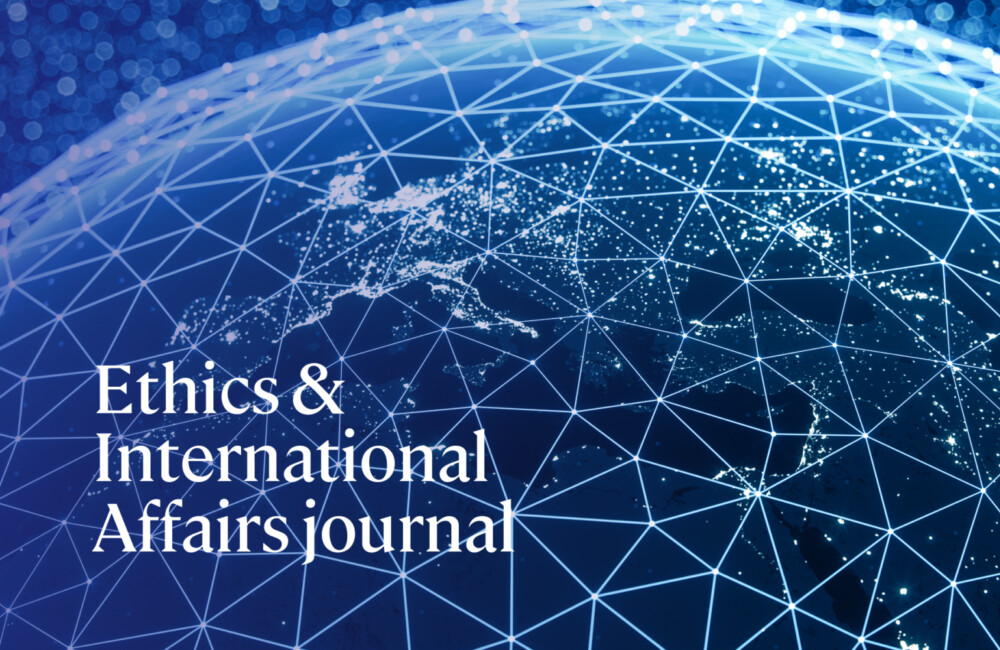With essays that devise innovative ways to advance long-standing debates interspersed with others that tackle new and urgent questions arising out of recent practice, Michael Barnett and Thomas Weiss's timely collection, Humanitarianism in Question, builds the case that, as humanitarian agencies confront the exigencies of crisis situations, donor relationships, and ongoing conversations regarding the essential nature and purpose of their work, "social science matters." In a concluding chapter, Weiss is joined by Peter Hoffman to argue that analysis, learning, and adaptation ought to be viewed as crucial to humanitarian action. Distilling the arguments of the book's contributors into a series of "lessons" for practitioners, they hope to signal the potential of an "evidence-driven" humanitarianism.
Chapters by Craig Calhoun, Peter Redfield, and Jennifer Rubenstein, for instance, find new points of entry and exit into and out of some traditional challenges for humanitarians. Rubenstein uses the tools of political theory and philosophy to enlarge our sense of how humanitarians differ in their distributive commitments, moving beyond discussions merely of whether they ought to be political or apolitical, consequentialist or Kantian. Redfield takes a fresh look at questions of which humanitarian causes should be taken up, and which letgo, by importing the notions of "sacrifice" and "triage." And Calhoun updates the record on the debate about the role of humanitarianism, providing a rich intellectual history and taking account of the new prominence of a pragmatic, managerial position alongside those that emphasize, on the one hand, improving humanity and, on the other, mitigating suffering.
Other contributors engage some of the most pressing issues thrown up by recent changes in the context of humanitarian operations. Reacting to the upturn in violent attacks against humanitarians, Laura Hammond introduces the concept of "performative violence," delivering the somber message that practitioners should not be lulled into a false sense of security by the misbegotten idea that their principles can double as a form of armor. And Janice Gross Stein draws on principle-agent theory to suggest that the emerging culture of accountability within humanitarian organizations—as states transition from the role of "providers" of emergency assistance to that of "regulators"—has the potential to generate stultifying degrees of risk aversion if it is not coupled with an emphasis on active learning.
Sovereignty: God, State, and Self, Jean Bethke Elshtain (New York: Basic Books, 2008), 334 pp., $35 cloth.
Jean Elshtain's latest offering is a dense yet engaging theological and intellectual history of the concept of sovereignty, based on her 2006 Gifford Lectures at the University of Edinburgh. Elshtain begins her history with a loving and logical God, as conceived by Aquinas and Augustine. It is here, in its Thomistic natural law conception, that Elshtain finds the conception of sovereignty at its most befitting: sovereignty as God's alone. She believes Western societies have since misunderstood the concept—indeed, to their detriment—and traces this misunderstanding to a theological conception of God as unbound will. The association of God's justice with will rather than with God's logos, Elshtain contends, opened the door to both authoritarianism and decadent individualism.
Elshtain tracks the conceptual jump from God as pure will to the definitive will of the medieval leviathan to the murderous godlike aspirations of twentieth-century tyrants. Her view is that our idea of sovereignty has leapt yet again: from the sovereign state to what she calls the "sovereign-self." She here moves from learned intellectual historian to capable polemicist and culture warrior, with erudite distinctions between Aquinas and Ockham, Machiavelli and Hobbes, Luther and Calvin, making way for debates about feminism, abortion, and stem cell research. Her target is a conception of individuality according to which anything goes, and the social evils she believes it has spawned.
Ethics Education in the Military, Paul Robinson, Nigel de Lee, and Don Carrick, eds. (Aldershot, UK: Ashgate, 2008), 224 pp., $124.95 cloth, $49.95 paper.
This is a stimulating invitation to discussion of the history, organization, purpose, and potential of military training academies worldwide, and a reminder of an important channel by which ethics come to shape and limit conflict. With much recent writing on the ethics of war concentrating either on large structures, such as governments and international organizations, or leadership failures at the highest levels, or indeed on such historical traditions as the just war, it is perhaps time to return to ground level and to rethink the role of ethics in mediating how soldiers themselves regard the subject and the event of war.
The particular focus of this volume is the educational methods by which the moral character and ethical sensibilities of soldiers are engendered. Not surprisingly, the book ties up fewer lines of inquiry than it leaves hanging, but coeditor Paul Robinson does a fine job in his introductory chapter of using the rich resources provided by his contributors to construct a firm baseline—such as by providing a cross-country guide to military values as well as a catalogue of typical educational methods, from logic lessons to battlefield tours—from which the conversation may move forward.
The main body of the book is structured in an unusual and effective way, with case study chapters on ethics education in the United Kingdom, United States, Canada, Australia, Norway, Germany, France, the Netherlands, Israel, and Japan, followed by three critical responses to the project as a whole, emphasizing, for instance, the potential need for trade-offs in military efficiency in favor of moral character if militaries are to hold true to their belief—voiced across the case studies—that their profession serves an important moral good. The studies themselves are full of valuable details, providing empirical support for propositions that one might have presumed were the case, such as the decisive contribution of Vietnam veterans to an "ethical renaissance" within the American military, while also presenting some engaging surprises, such as the prominent role of the military chaplaincy in the ethics education of Norwegian soldiers. This latter fact invites a consideration of secularism vis-à-vis military education not only with regard to Norway but also, for instance, the UK, where Christian virtues and vocabulary remain central to the armed forces' efforts to inculcate moral character.
Does Ethics Have a Chance in a World of Consumers? Zygmunt Bauman (Cambridge, Mass.: Harvard University Press, 2008), 272 pp., $25.95 cloth.
A pearl perched on a half shell adorns the cover of Zygmunt Bauman's Does Ethics Have a Chance in a World of Consumers? His questioning title paired with a classic symbol of avarice might lead one to expect a strident sociology of the shopping mall. Rather, Bauman's latest effort is a meandering collage of reflections on the pulse and psyche of contemporary society. The short answer to his question is, "No." The consumer is the enemy of the citizen: Consumerism has eroded Politics. The emancipatory project of modernity is no longer believed to be finishable, and most people do not particularly care. Bauman describes the pendulum of history as swinging toward fear and retrenchment, moving from Liberty, Equality, and Brotherhood to Security, Parity, and Network. Parity is "the emergent avatar of the idea of fairness," where the right to participate replaces the quest for socioeconomic equality (p. 120). Networks are the new social bonds—flexible and without history.
The new task of the social state, Bauman says, is to "salvage human solidarity from erosion and to keep the sentiments of ethical responsibility from fading" (p. 143). A state is social only "when it promotes the principle of communally endorsed, collective insurance against individual misfortune and its consequences" (p. 139; emphasis in the original).
On the global scale, Bauman points to the need for genuinely planetary politics, arguing that while the United States is distracted with war it is Europe's responsibility to experiment in this regard. Mutual hospitality is the central challenge on a limited planet, and any new global ethic will have to foster a sense of ease among the world's swirling heterogeneity—something Europe's cultural blending may be uniquely positioned to accomplish. Oddly, Bauman is quiet on the role of transnational actors—such as nongovernmental organizations that promote human rights, ethical trade and consumerism, and corporate responsibility—in shaping planetary politics.
At the root of the problem, writes Bauman, is a contradiction within civilization: neighbor-love versus self-interest. Consumerism derails the whole project by measuring progress in terms of demand, not in meeting people's needs. In Bauman's ethical world, growth cannot equal the speed with which goods are carted off to the dump.


